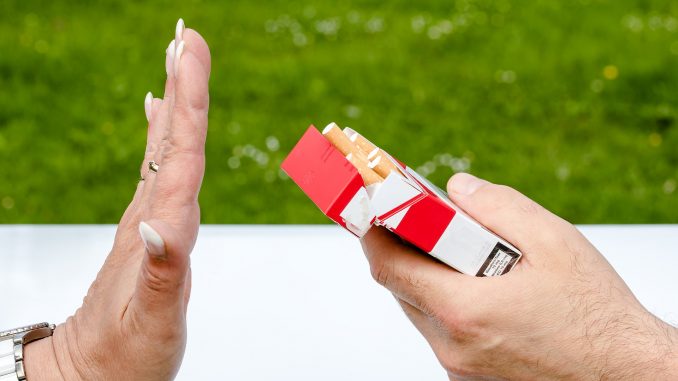
“Heat not burn” products are predicted to be the next big thing in the tobacco industry. IQOS, which is made by the same manufacturers as Marlboro cigarettes, is part of ongoing investment in the company’s “smoke free” future, along with e-cigarettes. The battery operated devices are designed to mimic the look and taste of a traditional cigarettes, but use a “heat stick” which uses a tobacco plug to deliver nicotine. By producing vapour rather than smoke, manufacturers claim that the products can protect consumers from the cocktail of harmful chemicals found in tobacco.
Although the manufacturers have carried out their own research which suggests the products aren’t harmful, a new independent study has indicated that they might not be as harmless as claimed. The authors of the study said: “iQOS is not strictly a ‘heat not burn’ tobacco product. This study has shown that the iQOS system may not be as harm free as claimed, and also emphasises the urgent need for further safety testing as the popularity and user base of this product is growing rapidly.”
The researchers found that those using the products speed up their rate of inhalation in an attempt to consume more nicotine. As the device only heats up for six minutes before being shut off, users will potentially be breathing larger amounts of vapour in this time. They also found that the tobacco plug charred as a result of a lack of oxygen and thermal decomposition. The build-up of debris could lead to increased temperatures.
Although PMI have welcomed the testing of their products, they say that they don’t agree with the results. It said in a statement: “Contrary to the authors’ conclusion the polymer-film of the filter does not melt in normal use nor does it release the named toxicant into the vapour. The polymer filter in the HeatSticks is made from corn starch. The toxicant the authors measured is not used in any step of the manufacturing process, nor was it detected in emission tests conducted by PMI scientists, under realistic conditions, using methods similar to what the authors themselves used.”
“Rather than melting, filter hardening and discolouration can result from the process of cooling the vapour, but this is not indicative of emission of toxicants. Studies using a variety of different puffing regimes showed no increase in the formation of toxicants, and clinical studies in which participants could use the product freely demonstrated reductions in exposure to toxicants approaching 95% of the reductions seen in smokers who quit for the duration of the study. Within the context of the totality of evidence on iQOS, we remain confident in our results to date, which demonstrate that iQOS is likely to be less harmful than cigarettes.”


Leave a Reply